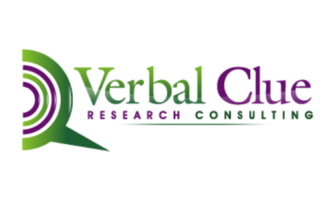
In market research, the moderator often plays an invisible role. We’re behind the glass, asking the questions, guiding the conversation, making sure every topic gets covered. But too often, moderators are hired as nothing more than “hired lips” — brought in to read a discussion guide word-for-word and hand over a transcript at the end.
Here’s the problem: when the moderator is only reading from the script, you risk walking away with exactly what you expected to hear… and nothing more.
Why “Hired Lips” Miss the Mark
Discussion guides are important — they’re the blueprint for the conversation. But people aren’t blueprints. Real human dialogue is full of nuance, contradiction, and surprising turns. A rigid, follow-the-guide approach often leaves valuable insight on the table because:
- Participants may not use the language you expect — meaning the right follow-up question is one you can’t script in advance.
- The richest insight often comes from something said “in passing,” not from a direct answer.
- The true motivators, barriers, and workarounds often emerge only when the conversation goes off the expected path.
A “hired lips” moderator might feel pressured to stick to the guide for fear of overstepping — but in doing so, they risk missing the clues that could change the direction of the research (or even the client’s strategy).
What Skilled Moderators Do Differently
A great moderator is more than a question-asker. They are:
- A listener first — tuned in to tone, hesitation, word choice, and body language.
- A strategic thinker in real-time — making subtle shifts to probe deeper, clarify contradictions, or reframe a question for better understanding.
- A meaning-maker — connecting what’s said in the room to the broader business questions driving the research.
The result? You don’t just get answers to your guide questions. You get fresh insights — sometimes entirely unexpected — that can fuel additional research or even stand on their own as actionable next steps.
The ROI of the Right Moderator
Hiring a “hired lips” moderator might seem cost-efficient on paper. But the hidden costs are steep:
- Misinterpreted consumer sentiment leading to misguided product decisions.
- Missed opportunities to identify unmet needs or new audience segments.
- Lack of depth, requiring more rounds of research to fill the gaps.
The right moderator helps you avoid those costs by surfacing insights you didn’t even know to ask about — the ones that can pivot your strategy, refine your messaging, or open new innovation paths.
My Approach
With 20+ years in qualitative research — and a unique background in both pharma and wellness — I bring more than a microphone to the table. I enter every project as a partner, not just a facilitator. That means:
- Helping refine your guide to ensure we’re asking the right questions in the right way.
- Staying agile in the conversation to uncover emotional drivers, latent needs, and emerging themes.
- Delivering findings that connect back to your business objectives — and open the door for future inquiry.
Because in the end, you’re not hiring me just to run the guide. You’re hiring me to help make your research investment pay off — in clarity, direction, and results.
Let’s Talk. If your next project needs more than “hired lips” — if it needs a strategic partner who can deliver deeper, more actionable insight — let’s start a conversation.
About
Judithe Andre is a strategic qualitative researcher, health coach, and founder of Verbal Clue Research, with over 20 years of experience uncovering the human truths that drive decisions. She has led thousands of in-depth interviews and focus groups across healthcare, wellness, and pharma — from oncology to women’s health to rare diseases — and brings a rare dual lens shaped by her time as both a seasoned moderator and a wellness entrepreneur. Known for her ability to read between the lines, Judithe helps clients go beyond surface-level feedback to reveal the emotional drivers, behavioral patterns, and unmet needs that spark real change.

Comments